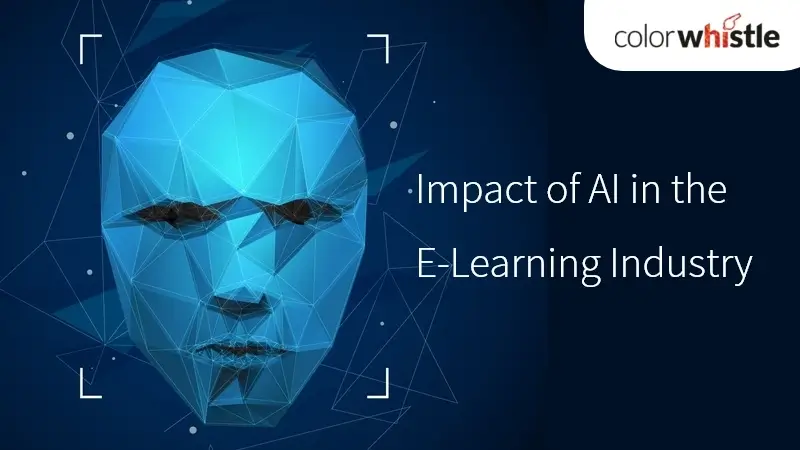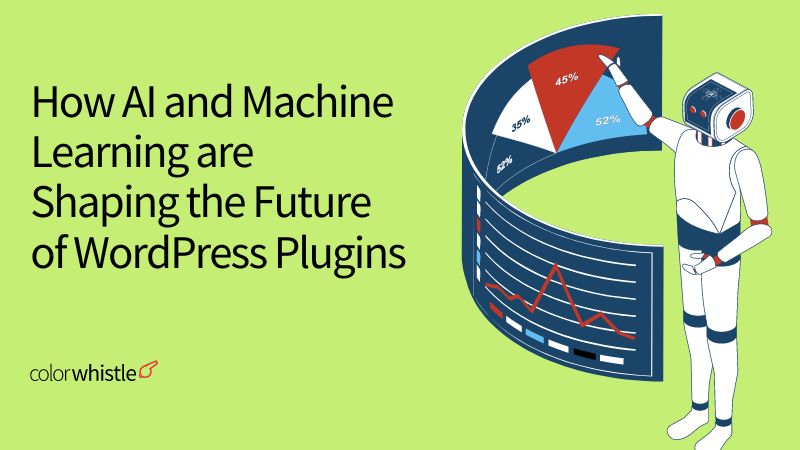Artificial intelligence (AI) is no longer a part of science fiction films. It is becoming a significant part of our everyday lives. We can already see that AI is impacting market segments like manufacturing and research & development, but what about other areas like learning and development? Let’s find out more about it in this blog!
In 1993, the introduction of Mosaic Web Browser revolutionized the way people experienced content. Since then, designers across the world have worked continuously to improve user experience. Some changes are also because of the evolution of broadband internet, the development of HTML5 standards and more. Rest of the changes have come from data-driven studies that explained what works and what doesn’t.
As users are expecting more customized content and good browsing experience, web development companies are thinking out-of-the-box ideas rather than sticking with traditional ones. This is where AI comes into the bigger picture — redefining all the conventional website and web app development concepts by giving more focus to UX.
Artificial intelligence is cropping up more and more in the e-learning industry. According to a research report by Global Market Insights, AI in the education market will surpass USD 6 billion by 2024.
As an educator, you must be in agreement that you need an AI strategy. But do you know how to implement one or where to start?
If you are preparing yourself to explore AI from many angles, understanding the various aspects of it might come in handy.
Let’s find out how you can benefit from AI and what you need to know about website or web app development using AI technologies for your education institution.
What is the Role of AI in the Education Industry?
Even though it is yet to be a standard cult in many organizations, AI is going to be the next big thing in education and learning.
AI’s role and impact are going to exist from kindergarten to higher education to corporate training. It is going to improve learners’ experience by offering the chance to create adaptive learning features with personalized tools.
Here are some of the ways in which AI is changing the education industry.
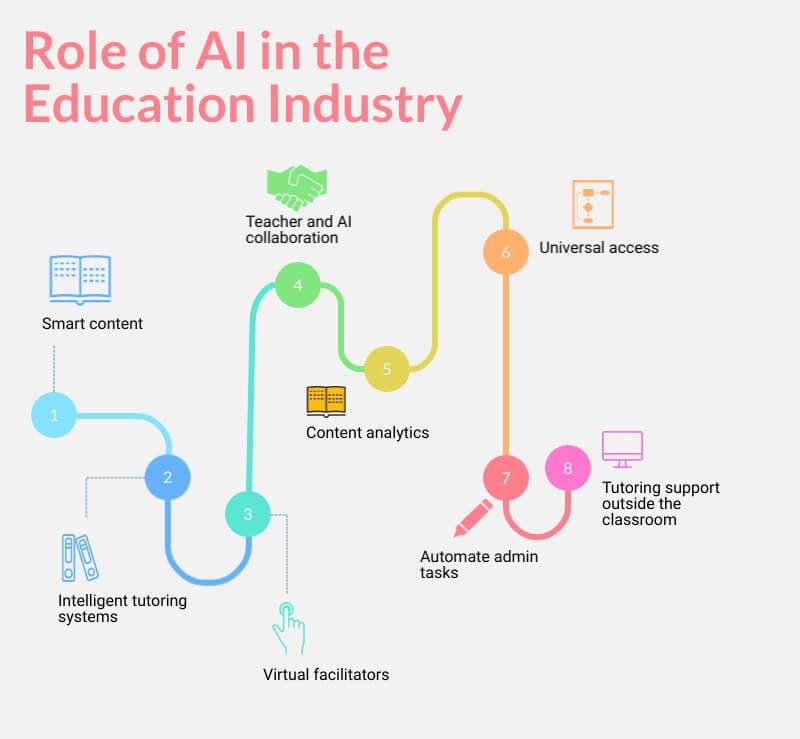
Smart content
From digitized guides, customized learning interfaces and digital curriculums, smart content can be created across various mediums such as audio, video and online assistant
Intelligent tutoring systems
AI not only has the power to condense lectures into flashcards and smart guides, but it can also be used to tutor students based on the difficulties they are having. For example, an intelligent tutoring system called SHERLOCK is used by airforce technicians to detect electrical system problems in aircraft
Virtual facilitators
By using trending technology such as gesture recognition, an actual lecturer can be replaced by a robot. AI, 3-D gaming and computer animation are used to create realistic virtual characters and interactions. Even augmented reality is a part of this system
Content analytics
Educators and content providers gain important insights into the learners’ progress through smart analytics. Through this, content taught to the learners is optimized for maximum effect
Teacher and AI collaboration
The vision for AI in education is one where AI and teachers can work together for the best outcome for students. For example, they collaborate in driving efficiency, personalization and streamlining admin tasks
Universal access
AI can make classrooms available to all including those who speak different languages or those who have visual or hearing impairments. For example, Presentation Translator is a free plugin for PowerPoint that creates real-time subtitles when a teacher speaks
Automate admin tasks
Educators spend a great deal of time in grading homework and tests. AI systems can already grade multiple choice questions and now they are close to accessing written responses
Tutoring support outside the classroom
Through AI, tutoring and support programs are becoming more advanced and can effectively help students with homework or test preparations
What is AIaaS in E-Learning?
It is natural to wonder where you might get AI tools to avoid the time and expense of developing your own. Don’t worry with the advert of AIaaS or “AI as a Service” even small education or learning & development professionals can purchase the license of AI tools and components.
However, such types of tools cannot be useful for every e-learning ecosystem, but may offer some enticing benefits such as adding standard AI tasks (logic, decision making) to your toolbox.
Here are some of the AIaaS tools and platforms offered by famous tech giants most of which are cloud-based.
There are other AIaaS platforms such as DataRobot, Petuum, and H2O which shows that the field is expanding.
What Are the Examples of Artificial Intelligence in E-Learning?
It is natural to wonder where you might get AI tools to avoid the time and expense of developing your own. Don’t worry with the advert of AIaaS or “AI as a Service” even small education or learning & development professionals can purchase the license of AI tools and components.
However, such types of tools cannot be useful for every e-learning ecosystem, but may offer some enticing benefits such as adding standard AI tasks (logic, decision making) to your toolbox.
Here are some of the AIaaS tools and platforms offered by famous tech giants most of which are cloud-based.
Microsoft Azure
Cloud-based AI services that can be used to build and manage AI applications like image recognition or bot-based apps
IBM’s Watson
Cloud-based AI services that can be integrated into your applications; to store and manage your own data
Google’s TensorFlow
An end-to-end open-source machine learning platform
Amazon Web Services
Offers a wide range of products and services on Amazon’s cloud
There are other AIaaS platforms such as DataRobot, Petuum, and H2O which shows that the field is expanding.
Duolingo
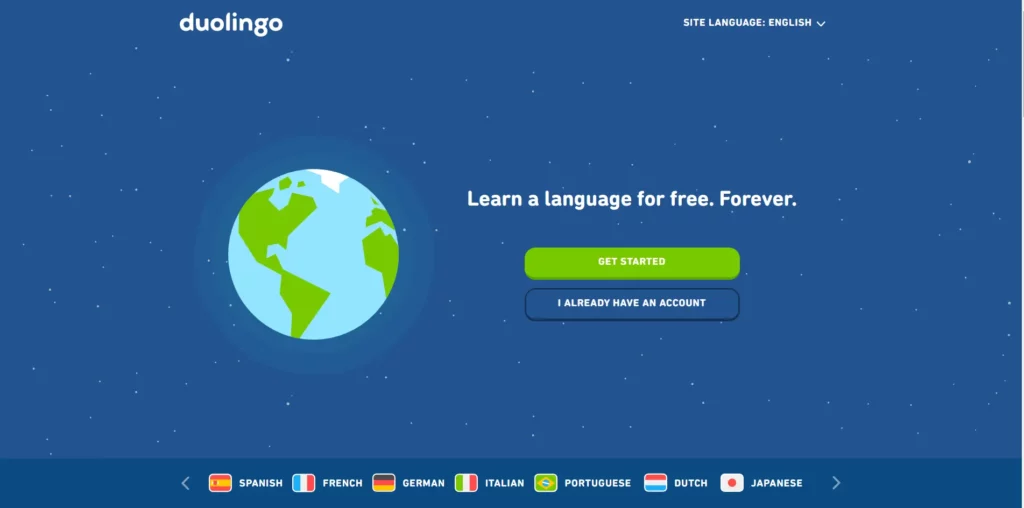
With over 300 million registered users, Duolingo is one of the most famous apps for learning foreign languages. The app is popular because of its game-like learning, personalized approach, a wide variety of unique exercises and AI-powered chatbots that allows students to have lifelike conversations for practicing.
Carnegie Learning’s MATHia
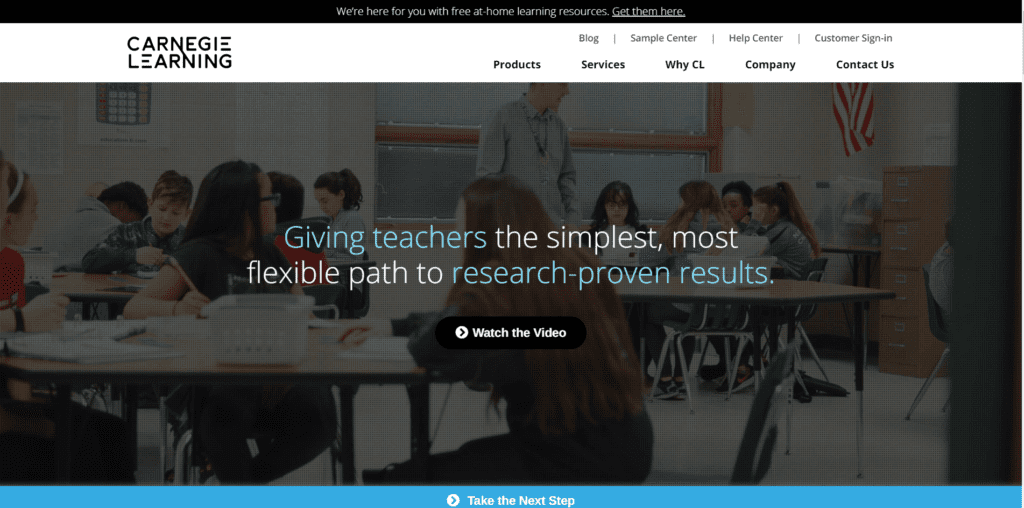
In the 2019 EdTech Breakthrough Awards Carnegie Learning’s MATHia was awarded the ‘Best Use of AI in Education’. MATHia is a learning engine that is designed for grades 6-12. The system adjusts according to the capacity of the learners, like delivering a different learning experience for struggling students and giving challenging tasks for those who can do more.
Massive Open Online Courses
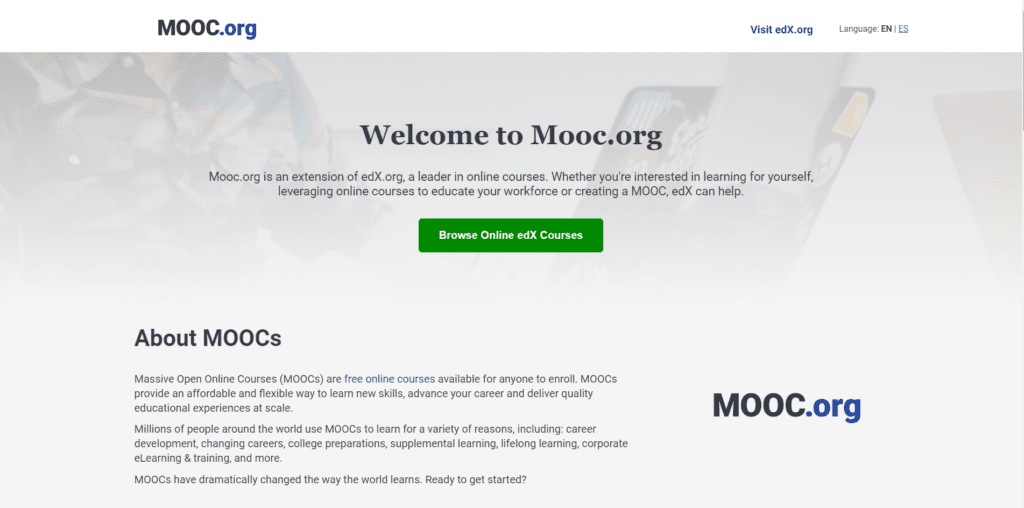
Anyone who has an internet connection can access Massive Open Online Courses (MOOCs). According to Class Central, in 2018, there were 101 million learners enrolled in MOOCs – Coursera 37 million, edX 18 million, XuetangX 14 million, Udacity 10 million and FutureLearn 8.7 million. Here are some examples of how MOOCs works – edX tracks how frequently a user watches a video and submits assignments. Coursera notifies teachers when a majority of students give an incorrect answer to a question.
What Are the Benefits of AI-Based Learning Management System (LMS)?
If you plan on keeping with the latest e-learning trends, then you must know AI has great potential in the LMS world.
Online training and learning need a lot of attention and a proper system to deliver what the learners actually need. So, an LMS that supports AI will make the learners’ journey smooth and help them better understand the course.
Here are some benefits of AI aided LMS.
- Content will be highly customized and adapted to the learner’s requirements
- Communicate with the users as a virtual tutor simulating human experiences by voice or hologram or an avatar
- Get access to data on learner progress and the level of comprehension
- Build a system that can identify and modify itself based on how learners respond
- Chatbots assisted learning to address the learner queries, provide additional help or tailor information based on performance
- Identify students who are struggling with tests or courses
- Offer adaptive learning for learners to ace every lesson
- Gamification tools to make the course engaging and relevant
Some top AI-powered LMS based platforms are,
How Artificial Intelligence Can Help in E-Learning Web Design & Development?
If you are new to AI-based solutions, then it must be a surprise when we say that these solutions can be used to considerably boost site performance, user retention, user experience and website responsiveness.
AI is permeating all the industries and education web design and development is no exception. It can help with issues related to security, coding, quality analysis, user experience and more.
Additionally, the use of AI in education web design and development can help web design service providers automate basic tasks, which will in turn help developers focus on the bigger picture of the project.
Here are some compelling reasons why you must use artificial intelligence while outsourcing your education web design and development project. If you have any questions, do clarify it with the company you are outsourcing to.
User experience
It is crucial to ensure that your courses are easy to find. Plus, many customer-centric web applications are relying on AI to improve user experience. We have written a detailed blog that highlights the difference between a website and web application, do read it if you like to learn more
Personalized content
By implementing AI on your website, you can show the audience certain content like new video or blogs that are designed for them
Mobile search optimization
One of the fastest growing trends in web development is mobile search optimization. As most learners use mobiles, AI can help to optimize for different mobile devices
AI as a UX element
The most obvious example of this is the growth of chatbots. They bring in a completely new type of website interface that is driven by conversation instead of just clicking.
Effective marketing
By analyzing and mining data with support from AI, you can improve your SEO strategies and developers can make sure the website is perfectly optimized for search engines and target audiences. Also, take a look at our blog that explains how AI is impacting digital marketing
What is the Future of Artificial Intelligence In E-Learning?
As many educational institutions are planning or already implementing AI in various operations, there are still challenges that need to be resolved. The most crucial one is preparing the students for this change. It is essential to make students understand AI will automate and perform repetitive tasks.
On the other hand, there will always be roles that require creative, cognitive and emotional intelligence skills. The best results will come out by combining AI and human abilities.
For example, AI-based learning systems could be excellent tools for teaching subjects like foreign languages and math. However, a teacher would still be needed to guide students on the parts they did not understand like the nuances and exceptions to rules.
Even though AI offers many exciting developments for improving the e-learning area, it is still in the early stages of its use. More experimentation and research are required for successful implementation.
Personally, we would recommend e-learning leaders and administrators to become proactive and initiate pilot programs to test AI in various ways. If you are testing it in real-time, do inform students about how their data is used.
Click here to learn more about what 17 industry experts had to say about the future of AI in education.
In Conclusion, AI is Going to Pave a New Pathway for the E-Learning Industry in the Coming Decade
Artificial Intelligence in the e-learning sphere brings positive effects on children, adults, teachers and schools. It helps high-quality education accessible to everyone and allows students to study at their own pace. AI-driven solutions can answer learners’ questions, recommend personalized resources and grade papers. From a business perspective, it will help to predict when a student is about to drop out and give them the extra support they need.
To conclude, even though many educators fear that AI technologies will replace humans, we feel that AI will serve as an excellent support system for human experts.

